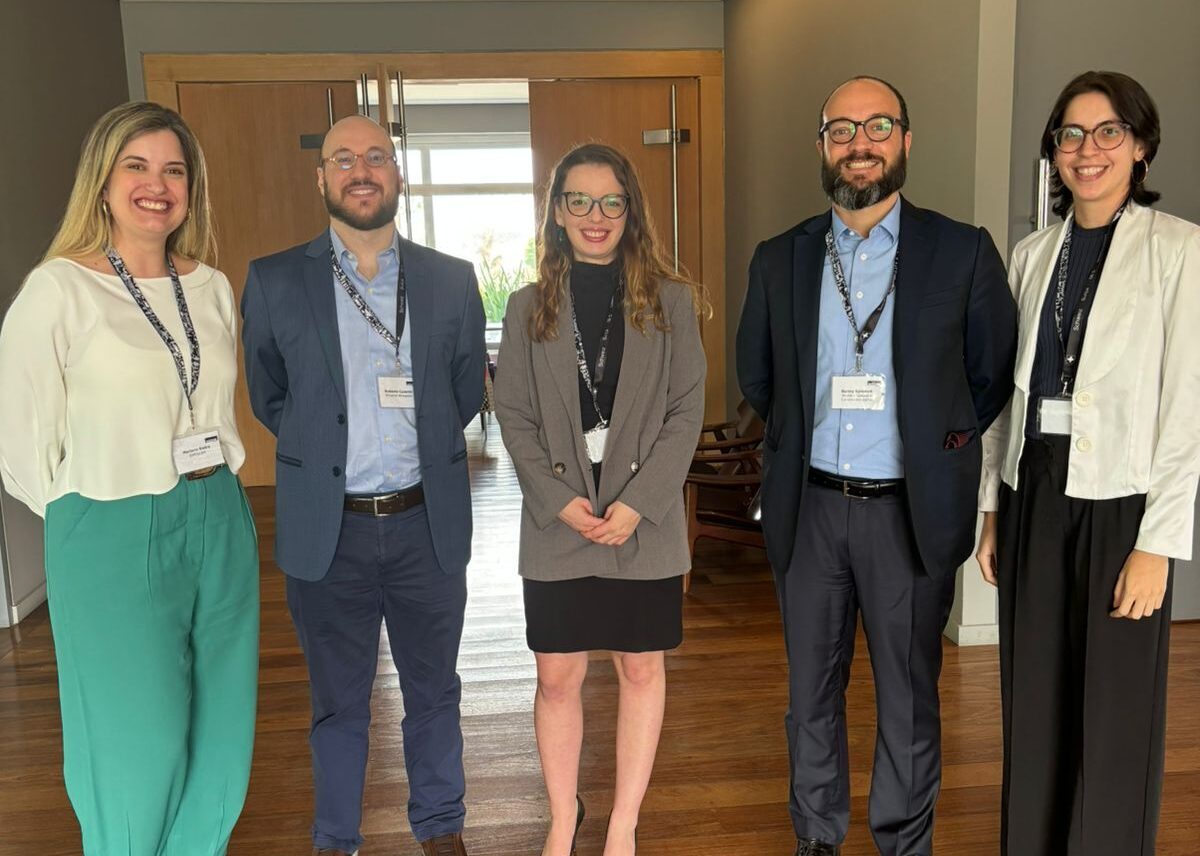On Sptember 11th, the Legal Committee held a face-to-face seminar on:
“Legal and ethical implications of the use of artificial intelligence: aspects in the labor, tax and health areas”
The seminar proposed discussions on the current and future prospects of artificial intelligence from a labour and tax perspective, as well as advances in healthcare. Experts provided valuable insights into the trends and changes shaping the present and future in these areas.
Summaries and Speakers
Impacts of Artificial Intelligence on Labour Relations
Artificial intelligence is the field of computer science that seeks to create systems through the development of algorithms that can recognise patterns, analyse images and other content, make medical diagnoses and make a range of decisions that can make everyday life easier for society. It’s no different in the field of employment relations, where we see software responsible for screening CVs, assessing emotions via video and even employee productivity. This presentation will try to present basic concepts about artificial intelligence and how it works, allowing us to understand the reason for the machine’s potential biases, as well as provide examples of tools that affect labour relations and how to implement them with legal certainty in a national context that has not yet been explicitly regulated, and finally, it will address key points of the main legal frameworks under discussion in the Brazilian legislative context.

Nayara Ferreira Marques da Silva
Lawyer in charge of the labour area at Furriela Advogados, Tutor at the Postgraduate Course in Labour Law at FGV-SP, Master’s student in Labour Law at PUC-SP, Postgraduate in Business Law. She acts in advisory and litigation cases involving individual and collective labour law that impact national and foreign organisations from various sectors and is carrying out academic research into the impact of artificial intelligence and technology on labour relations.
The impacts of artificial intelligence and the actions of the tax authorities
The aim is to demonstrate how AI is being used within the tax administration, its impact on the crossing of tax obligations at domestic and international level, as well as regulatory and tax issues relating to potential breaches of confidentiality.

Roberto Casarini
Tax Partner at Demarest Advogados. Graduated and Post-Graduated Lato Sensu in Law from the University of São Paulo – USP. Master of Laws from the Getulio Vargas Foundation – FGV. Guest lecturer on courses such as: MBA (BSSP), specialisation (IBDT) and undergraduate (ESPM).
Artificial Intelligence in Healthcare
Our presentation will provide insights into how Artificial Intelligence is revolutionising the healthcare sector. AI is driving innovations that increase the accuracy of diagnoses, personalise treatments and make care more accessible and effective, including chronic disease management and drug discovery.

Benny Spiewak
Benny Spiewak (CCEP-I, CHC, LLM) is SPLaw’s managing partner, working on legal, regulatory and compliance issues for the pharmaceutical, health products and hospital technology industries. He is certified in Intellectual Property (IP) and Technology by the Getúlio Vargas Foundation and the Franklin Pierce Law Centre. He holds a Master’s degree in Law from George Washington University. Since 2007, he has been a consultant for the World Intellectual Property Organisation on issues connecting IP, health and international trade. He is the coordinator of the health compliance course at Seton Hall University and teaches law at the health management faculties of FIA and Oswaldo Cruz.





